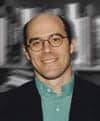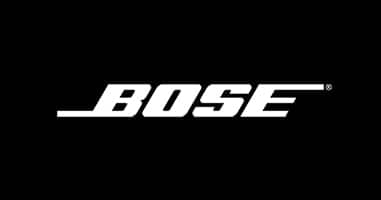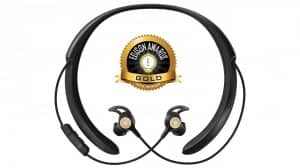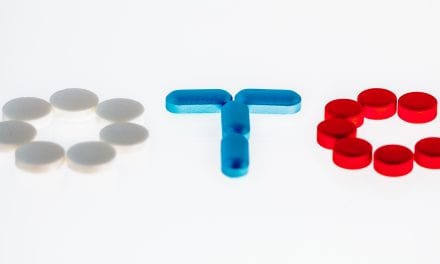On Monday, I was able to speak with three leaders from Bose’s Hearing business who are spearheading Bose’s entry into the hearing care market.
They were able to provide only scant details about Bose’s plans for the hearing healthcare market but were generally complimentary of HR’s blog last week on the subject. While it should be stressed that our meeting was about the possibility of editorial coverage of their company and products, here is what I came away with that might be interesting to hearing care professionals:
Hearphones will not be marketed as a Bose Hearing Aid. Bose went to some lengths to clarify this, because they say that the Bose Hearing Aid in the De Novo grant did borrow from the Hearphones technology and platform. This was my contention in last week’s blog, as well.
Bose has in-house experience in developing and validating novel ways of fitting hearing aids. Long-time research audiologist and educator Dianne Van Tasell, PhD—who recently retired from Bose—was one of the key developers of UnitedHealth’s hi-HealthInnovations’ Home Version hearing test. In a Tech Topic article published in the January 2012 Hearing Review, Dr Van Tasell demonstrated that the Home Version method for determining optimal gain prescription when calibration of earphones was not possible resulted in prescribed gains in at least one hearing device memory within 6 dB of NAL-NAL2 gains for 91% of comparisons (144 test subjects over 6 frequencies). This online hearing test was actually implemented but later taken down from the hi HealthInnovation’s website after FDA issued a letter stating that it was in violation of the Federal Food, Drug, and Cosmetic Act until it could be approved via 510(k) clearance. Dr Van Tasell subsequently was a principal in Ear Machine, a startup company that developed self-fitting technology that did not require a hearing test. Ear Machine and its technology were acquired by Bose in 2014 and implemented in Hearphones. The Bose self-fitting hearing aid in the De Novo grant also utilizes this self-fitting technology, and the leaders I talked with emphasized that the method does not include measurement or estimation of hearing status.
Bose views its self-fitting hearing aid and the FDA de novo application as being primarily focused on direct-to-consumer distribution. In last week’s blog on this subject, I stated that it was my belief that, due to the FDA Class I and Class II categories, they would probably be bound to some form of professional dispensing chain; that’s not exactly how they saw it. The company wishes to bring their self-fitting hearing device to “where the consumer is” and thus make the greatest impact possible with its hearing aid. While they could not—and did not—comment on any distribution strategy, they also said that any DTC strategy wouldn’t preclude distributing the hearing aid through professional dispensing channels. However, any involvement of dispensing professionals would be in addition to a DTC component—whatever form that would take.
It would appear the product is still some time away from being mass produced. What Bose’s timeline is, however, is anyone’s guess. From my understanding of the de novo process, Bose must first wait until FDA publishes its summary Special Controls document governing the requirements applicable to subsequent companies, as well as details of the Bose clinical study.
Again, because of the competitive factors involved when launching any new product, these leaders were understandably careful not to say much to a hearing industry reporter regarding their product/online test, distribution strategy, or future plans. However, they did express interest in working through the professional channel, and have just started distributing Hearphones through Oaktree Products, which in my view is good news—for all of us.
Update: Since writing this blog, a lawyer familiar with the De Novo process said that Bose does not necessarily need to wait until the FDA publishes its summary special controls document; technically speaking, they could market the device immediately, while others wishing to apply for the new self-fitting hearing aid category would have to await the publication of the document. However, given the special controls and requirements for manufacturing/distribution, it would still be my hunch that you will not see the immediate launch of the Bose Hearing Aid.







Great post
Thanks for sharing
Could you perhaps elaborate on the expected differences/advantages between the Hearphones and the ones to come?
Unfortunately, I cannot offer anything other than speculation. Bose is a major consumer electronics company, and like Apple, they keep their product development very close to the vest. I can safely say that, in addition to the self-tuning/programming features, it will almost certainly come with an advanced noise-reduction system and high sound quality. But other from that, your guess is probably as good as mine. Bose’s de nova filing can been viewed here: https://www.accessdata.fda.gov/cdrh_docs/reviews/DEN180026.pdf However, the filing as I understand it, constitutes only a “proof of concept”; thus, the end-product may be substantially different than what you see in the filing.
Any idea at all when they will be coming out?
No. Bose is currently not saying when the technology will be available.
Hi iam a 50 year old men on social Security and Medicare are this hearing aid going to be affordable as you know Medicare don’t paid for them thank you albert
How can you be on Social security and Medicare at age 50?
Juan Carlos, he’s probably getting disability due to a health issue.
Karl, thanks for the detailed follow-up on this confusing ruling……we are still waiting to figure out how all of this will land, but the information you have described brings it a step closer.